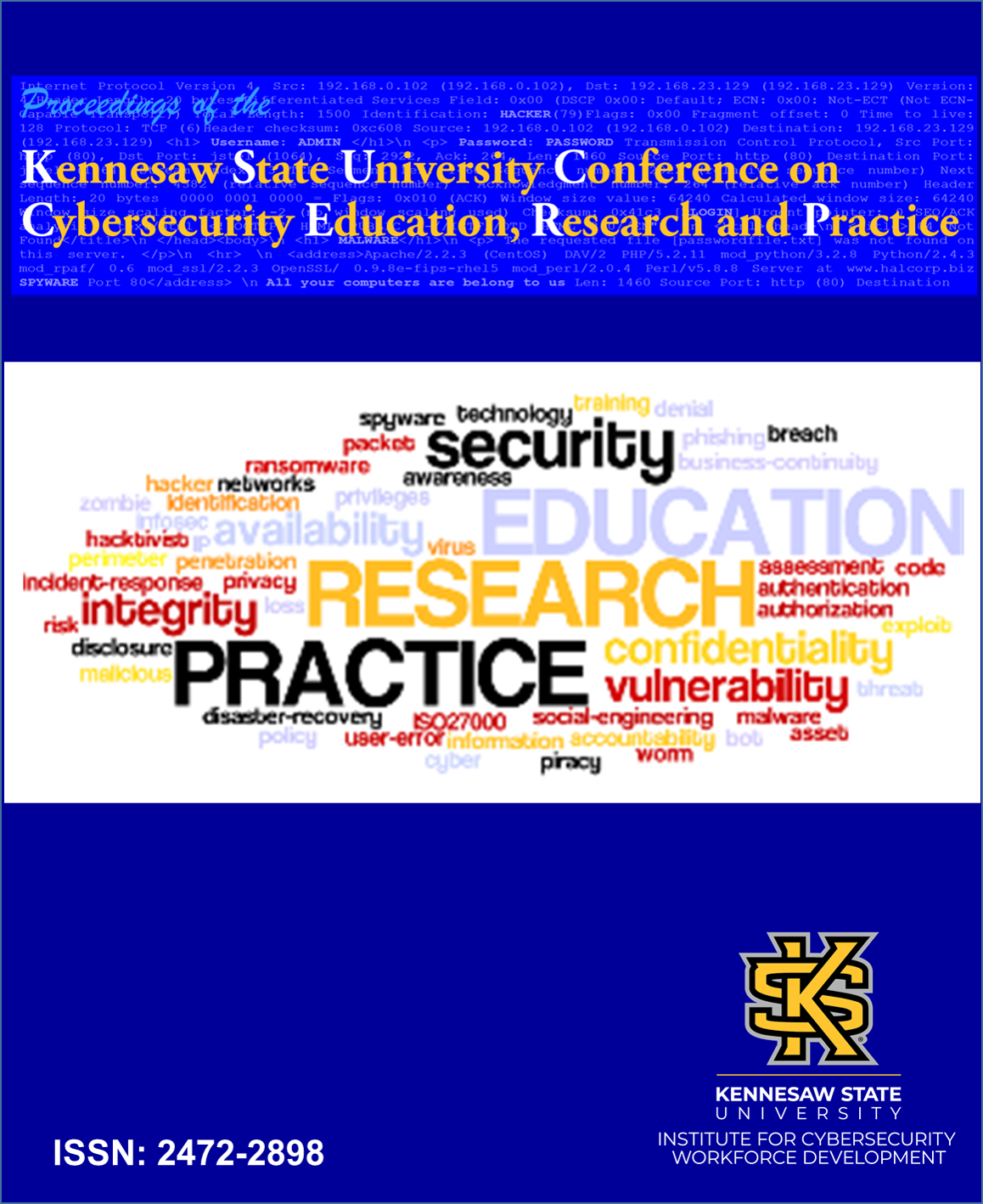Start Date
14-11-2022 12:05 PM
End Date
14-11-2022 12:30 PM
Abstract
This study implemented an expert panel to assess the content validity of hypothetical scenarios to be used in a survey of cybersecurity risk across project meta-phases. Six out of 10 experts solicited completed the expert panel exercise. Results indicate that although experts often disagreed with each other and on the expected mapping of scenario to project meta-phase, the experts generally found risk present in the scenarios and across all three project meta-phases, as hypothesized.
DOI
10.32727/28.2023.7
Using Experts for Improving Project Cybersecurity Risk Scenarios
This study implemented an expert panel to assess the content validity of hypothetical scenarios to be used in a survey of cybersecurity risk across project meta-phases. Six out of 10 experts solicited completed the expert panel exercise. Results indicate that although experts often disagreed with each other and on the expected mapping of scenario to project meta-phase, the experts generally found risk present in the scenarios and across all three project meta-phases, as hypothesized.



Comments
10-31 Update: Added ORCID for each author.
CCERP Paper 1153 - Using Experts for Improving Project Cybersecurity Risk Scenarios
Responses to Reviewer Recommendations and Feedback
Reviewer’s issue
Our response
Report standard deviation along with means in table 3
As the sample size for this phase (5 or 6) was very small, calculating statistics was not useful or particularly meaningful, and so we refrained from calculating the standard deviations, and we say so in the paper now. We also added a limitations section that mentioned this, too.
The final study to be published in a future article had n=66 and we will report complete statistics including standard deviation and other measures of effect size. The stats reported here in table 3 are only meant to be interpreted as preliminary indicators that our scenarios were potentially useful for the final study, which was our goal for this phase.
Write in third person
We removed more than 30 occurrences of “we”, “our” and “us”, converting to third person voice
Add more literature review
We added references to:
More detail on the instrument design—any additional assessments?
We wrote up more detail on the development of the instrument, including pilot studies before and after the expert panel.